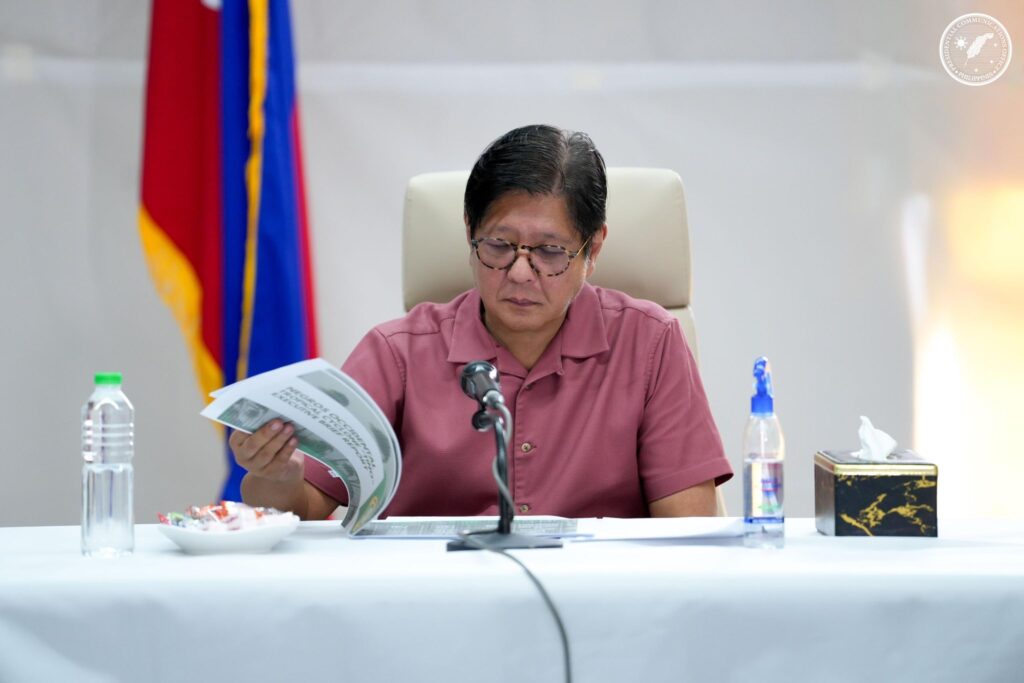The Marcos Jr. administration is creating a food crisis by invoking high rice prices when it has reduced tariffs on imports to 15% in the wrong belief that foreign rice is cheaper. It forgot the fact that the state itself has abandoned its chief function as guarantor of food security by banning the National Food Authority (NFA) from keeping ample rice supply to influence prices. No longer a market whip, NFA is mandated to keep only a three-month buffer stock, now reduced to only two months.
Whoever thought that the rice importers, wholesalers and big retailers are faithful players in a “free market” where the principle of supply and demand operates and the unseen hand fixes the market, stabilizes it and ensures that the consumers would get their staple at the right price is grossly mistaken. The genius behind the Rice Tariffication Law (RTL) so beloved by Sen. Cynthia Villar should be scalped. Unbridled rice importations have kept prices sky-high and the reduction of tariff to 15% never reduced prices of imported specialty rice, imported well-milled rice and the 25% brokens that Vietnam ships to the Philippines. The joke in Vietnam is that without the Philippine importers, the 25% brokens would end up as cattle feed.
The Department of Agriculture (DA), consistent with its stream-of-consciousness policies, is poised to recommend that Malacanang declare a food emergency to keep rice prices, neglecting the fact that before the despised RTL was enacted, the state, through the NFA could dump rice stocks to check runaway price increases. Moreover, the NFA buys palay straight from farmers, thus influencing palay farmgate prices. Now, the NFA is reduced to keeping buffer stocks in volumes it can hardly dispose of, given the 4.78-million metric tons (MMT) of rice imported last year. Yet, the state jagoffs thought that the food agency has to get rid of its “aging” stocks, which means the staple no longer has good eating quality, by “dumping” about 300,000 MMT of rice to the traders, local government units (LGUs) and state agencies.
Malacanang must be infected with bad conscience to declare a food emergency. The state has abdicated in its duty to protect consumers by privatizing the rice supply and enshrining the RTL of Sen. Cynthia Villar and her pals as the solution to the chronic high rice prices. Their argument has gone bonkers since the law was enacted in 2018 under the similarly stream-of-consciousness management of the unlamented Duterte regime as prices shattered the roof despite assurances by state economists that pesky prices would go down. Didn’t they read that George Soros said that the market is always wrong? People always intervene in the market and influence it, and what better principle is at work? It is called the profit motive.
This so-called food security emergency is an admission by the DA that the RTL, also known as Republic Act No. 12708, which Villar and others were manna from heaven, was the legal ploy to cripple the NFA, legitimize unbridled importations and enrich favored rice importers. When RA 12708 proved to be a dud as rice prices skyrocketed, Marcos Jr. issued Executive Order No. 62 to reduce the tariff to 15%, which critics said gifted importers with P16-billion. As the law and the order proved to be useless, the Marcos Jr. regime now talks of the food security emergency that in essence would only reduce the 300,000 MMT of NFA rice that are starting to rot.
In short, the NFA rice that should have been released when the prices started rising was kept in storage as the importers and big traders feasted on consumers, hoarding the commodity without any fear of prosecution despite the law against smuggling and hoarding. Favored parties may now buy rice stocks overseas in advance, assuring themselves of cheaper grain, to the detriment of Filipino farmers who are saddled with risks and the prospect of depressed palay farmgate prices. These are the same farmers promised to high heavens about the manna from their share of the rice tariffs. It is certainly illogical for the modernization and mechanization of the rice industry to depend on higher rice tariff collections. The tariffs must be deemed by the sponsors of RTL as the necessary ingredient for the death of the rice industry.
The KIlusang Magbubukid ng Pilipinas (KMP) condemned not only RTL and its sponsors but also disputed the mantra of the government that food imports are the best antidote for chronic shortages. KMP leader Danilo Ramos argued that it is the duty for the state to ensure that the country produces food for every pantry, as what the Constitution mandates. There is simply no blueprint to raise palay output, subsidy has been scrapped as a market-distorting option even as Thailand, Vietnam, India, Pakistan, China and other countries subsidize their rice farmers and production assistance has been withheld, including aid for those who suffered from La Nina and El Nino as well as the spate of typhoons.
Other farmer groups also assailed the so-called food emergency since there is no emergency at all as the rice stocks are all there, under lock and key, to be released drip-by-drip. Federation of Free Farmers (FFF) national manager Raul Montemayor insisted that the crisis is the government’s own making. Instead of running after economic saboteurs, they shamelessly resorted to just emptying the NFA warehouses of rice, the volume of which, at 200,000 sacks, could not reduce prices between P3 and P5 a kilo as the DA has predicted. KMP said what they are doing now is another grand show signifying nothing while pregnant with optimism to a criminal level.




